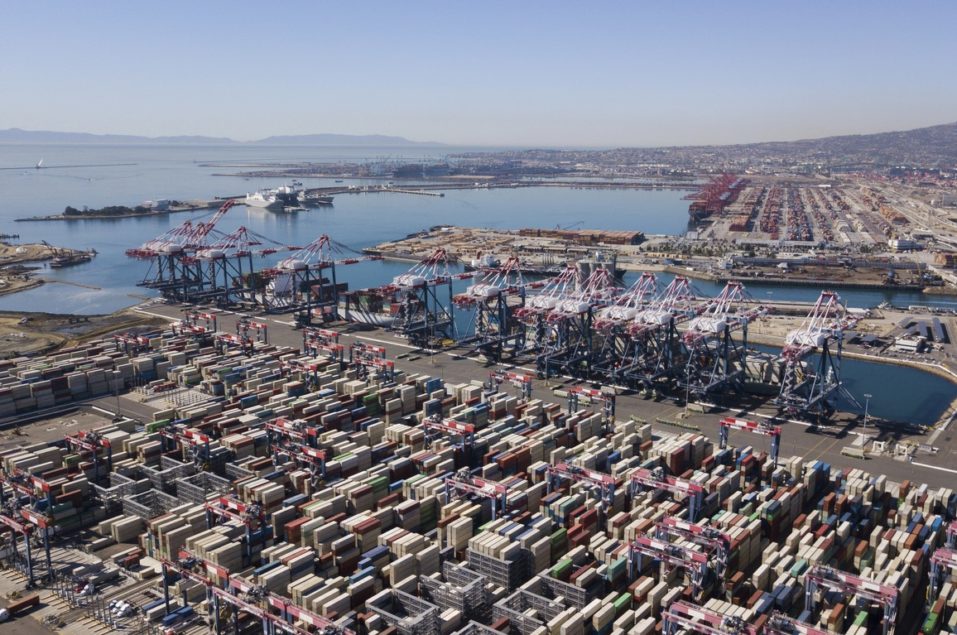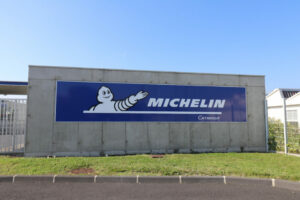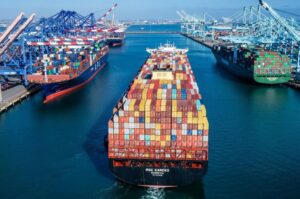
Five of California’s containerized ports - the Port of Hueneme, the Port of Long Beach, the Port of Los Angeles, the Port of Oakland and the Port of San Diego – signed a Memorandum of Understanding April 26 to launch the California Port Data Partnership. Under this agreement, the five ports will jointly use computerized and cloud-based data to improve freight system resilience, goods movement efficiency, emissions reduction and economic competitiveness.
In recent months, the five ports and the State of California have held bi-weekly roundtable discussions to develop the framework for the MoU which will serve as the basis of cooperation for the $27 million in grant funds being invested by GO-Biz to create the California port data system. These funds were included in the Budget Act of 2022, which promised a “historic multi-billion-dollar state investment” in California’s supply chain and goods movement sectors.
Read more: West Coast Dockworkers Reach Tentative Deal on Port Automation
“California’s ports are an essential link in the global supply chain. Thanks to the leadership of Governor Newsom and our state Legislature, California is establishing a first-of-its-kind, collaborative data system between all our state’s containerized cargo ports,” said California Lieutenant Governor Eleni Kounalakis who praised the recently signed agreement, claiming it will, “create a greener, more transparent, and more efficient supply chain -unlocking innovation in how cargo moves in California.”
The MoU signing comes six days after the International Longshore and Warehouse Union dockworkers union (ILWU) said that it had reached a tentative agreement with employers on “certain key issues” reportedly related to the automation of West Coast cargo terminals, according to the WSJ Logistics Report’s Paul Berger.
The details surrounding the deal between employers and the ILWU haven’t been disclosed, but automation has been a critical fault line in the negotiations to replace a multiyear contract that expired in 2022. The ILWU is against any expansion of existing automation, arguing it would cost jobs without helping efficiency while shipping companies and terminal operators want to build on existing robotics operations.
- SEO Powered Content & PR Distribution. Get Amplified Today.
- PlatoAiStream. Web3 Data Intelligence. Knowledge Amplified. Access Here.
- Minting the Future w Adryenn Ashley. Access Here.
- Source: https://www.supplychainbrain.com/articles/37141-five-california-ports-sign-memorandum-of-understanding-for-data-partnership
- :has
- :is
- 2022
- 26
- a
- According
- Act
- After
- against
- Agreement
- All
- an
- and
- Angeles
- any
- April
- ARE
- AS
- Automation
- basis
- Beach
- been
- being
- Berger
- between
- budget
- build
- but
- by
- CA
- california
- Cargo
- chain
- claiming
- Coast
- collaborative
- comes
- Companies
- competitiveness
- contract
- cooperation
- Cost
- create
- critical
- data
- Days
- deal
- details
- develop
- Diego
- discussions
- Economic
- efficiency
- efficient
- Emissions
- employers
- essential
- establishing
- existing
- expansion
- For
- Framework
- freight
- funds
- Global
- goods
- Governor
- grant
- had
- Have
- Held
- helping
- How
- HTTPS
- improve
- in
- included
- Innovation
- International
- invested
- IT
- Jobs
- jpg
- Key
- launch
- Leadership
- Legislature
- Line
- LINK
- logistics
- Long
- los
- Los Angeles
- Memorandum
- memorandum of understanding
- million
- months
- more
- more efficient
- MOU
- movement
- moves
- multiyear
- negotiations
- Oakland
- of
- on
- Operations
- operators
- our
- Partnership
- Paul
- plato
- Plato Data Intelligence
- PlatoData
- ports
- Praised
- promised
- reach
- recent
- recently
- related
- replace
- resilience
- robotics
- Said
- San
- San Diego
- Sectors
- serve
- Shipping
- sign
- signed
- signing
- SIX
- State
- supply
- supply chain
- Surrounding
- system
- Terminal
- thanks
- that
- The
- The State
- These
- this
- to
- transparent
- under
- understanding
- union
- use
- want
- Warehouse
- were
- West
- which
- while
- WHO
- will
- with
- without
- would
- WSJ
- zephyrnet












